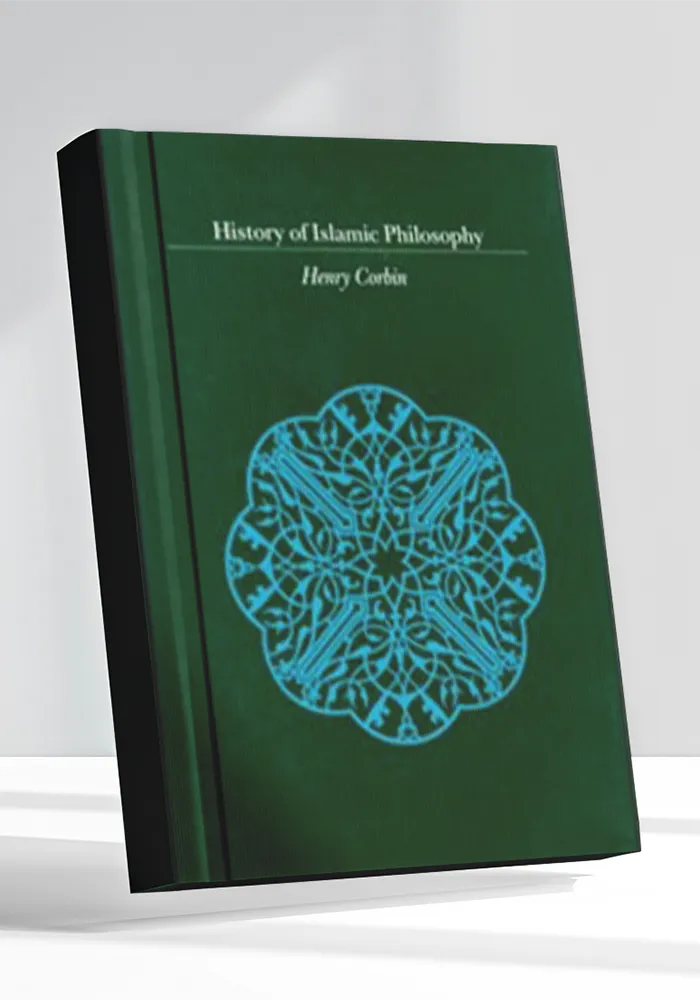History of Islamic Philosophy
History of Islamic Philosophy – By: Henry Corbin
On the occasion of World Philosophy Day, celebrated annually on 21st November, we take the opportunity to spotlight a landmark work in the realm of Islamic philosophy: a seminal book authored by Professor Henry Corbin, a renowned scholar and Orientalist deeply respected for his contributions to the study of Islamic thought.
Henry Corbin’s works are considered cornerstones for understanding Islamic philosophy, particularly its metaphysical dimensions, bridging the historical with the spiritual, and the philosophical with the mystical. Below, we delve into the details of one of his most influential books and its significance in the study of Islamic philosophy.
Bibliography of the Book:
- Author: Henry Corbin
- Number of Pages: 462
- Language: English
- Type: Paperback, Hardback, E-book
- ISBN: 9780415760089
- Publisher: ROUTLEDGE
- Place of Publication: London, United Kingdom
Description:
First published in 1993 in French. Published here for the first time in English, this highly important work by Henry Corbin, the Islamic scholar, philosopher and historian of religion, is a definitive interpretation of traditional Islamic philosophy from the beginning to the present day. In this authoritative volume, Corbin makes clear the great themes of the doctrinal and mystical vision of lslamic philosophy through a wealth of comparative parallels and in relation to the most profound currents of Western philosophy. In Part One, From the Beginning Down to the Death of Averroes, Corbin considers the Sources of Philosophical Meditation in Islam; Shi ism and Prophetic Philosophy; the Sunni Kalam; Philosophy and the Natural Sciences; the Hellenizing Philosophers; Sufism; Al-Suhrawardi and the Philosophy of Light, and the Andalusian Tradition. In Part Two, From the Death of Averroes to the Present Day, he examines Sunni Thought, the Metaphysics of Sufism, and Shiite Thought. Corbin’s History of Islamic Philosophy is both an inspirational book and an essential work of reference, enabling readers to discover themselves the richness of this body of thought.
Table of contents
Transcription
Foreword
Part One: From the Beginning Down to the Death of Averroës (595/1198)
I. The Sources of Philosophical Meditation in Islam
II. Shiism and Prophetic Philosophy
III. The Sunnī Kalām
IV. Philosophy and the Natural Sciences
V. The Hellenizing Philosophers
VI. Sufism
VII. Al-Suhrawardī and the Philosophy of Light
VIII. In Andalusia
Part Two: From the Death of Averroës to the Present Day
General Survey
I. Sunnī Thought
II. The Metaphysics of Sufism
III. Shiite Thought
Perspective
Elements of a Bibliography
List of Abbreviations
Author’s Biography
Henry Corbin (1903-1978) was one of the most important French philosophers and orientalists of the 20th century as well as one of the most influential scholars of Islamic mysticism and philosophy. A former professor of Islam and Islamic Philosophy at the Sorbonne and the University of Tehran, Corbin was the author of several books, including Alone with the Alone: Creative Imagination in the Sufism of Ibn’Arab.
Orientalist and philosopher, Corbin is one of the most prominent thinkers of the twentieth century. Discipleof Etienne Gilson and Louis Massignon, whom he succeeded in the chair for the Study of Islam at the Ecole Pratique des Hautes Etudes at the Sorbonne, he was also one of the fundamental pillars – with CG Jung and M. Eliade, among others – of the Eranos Circle from 1949 to 1977, Director of the department of iranology of the Franco-Iranian Institute of Tehran from 1946 to 1970, professor for more than thirty years at the University of Tehran and a founding member of the University of Saint John of Jerusalem.
Henry Corbin opened the eyes of the West, about the existence of a completely unknown world: the deep spirituality of the great mystics and Shiite philosophy developed in East Muslim world, particularly in Iran, after the death Averroes (Ibn Rushd). His work centered on the Islamic knowledge and spirituality but developed in the context of the three monotheistic religions, has a considerable number of studies on rituals, as well as translations and editions of ancient unpublished Arabic and Persian texts, that he recovered himself patiently in the libraries of Turkey and Iran.
editor's pick
news via inbox
Subscribe to the newsletter.




